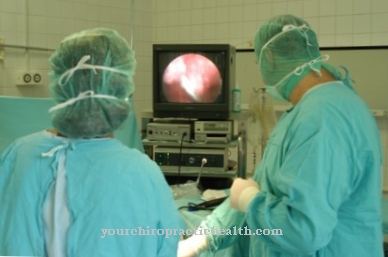Of the ENT doctor, or ENT doctor, is a specially trained specialist in the field of ear, nose and throat medicine. He can set up his own practice or work in a clinic.
What is an ENT doctor?

Of the ENT doctor treats injuries, malformations, diseases and other health restrictions and disorders in the area of the nose, ears, mouth, throat, throat, larynx and esophagus. In order to be approved as an ENT doctor, one must first complete the regular medical degree with a standard study period of six years and three months.
This is followed by a five-year training course to become a specialist in ear, nose and throat medicine. During this training period, the doctor has to carry out a certain number of examinations, treatments and operations. The first three years of specialist training are devoted to the basic topics of ENT medicine, in the last two years skills and knowledge about special medical cases are learned.
The activity of the ENT doctor often overlaps with other medical specialties such as aesthetic surgery (cosmetic surgery), oral and maxillofacial surgery, dermatology (diseases of the skin) or neurology (nerve diseases).
Treatments
Of the ENT doctor specializes in diseases, injuries and malformations in the head area. He is responsible for complaints of the nose and the paranasal sinuses such as rhinitis, allergic rhinitis (hay fever), disturbances in nasal breathing or sinusitis.
It may also be necessary to work with a dentist or oral and maxillofacial surgeon, as sinus inflammation can also spread to the maxillary sinus. The ENT doctor also treats all diseases that affect the ear and auricle. These include tinnitus, hearing loss or hearing impairment, ear infections, otitis media, or damage to the eardrum. He is also responsible for the balance organ within the ear, as well as for neuralgia (nerve diseases) in the head area.
A neurologist can also be involved in the latter. Injuries and diseases of the mouth and throat as well as the esophagus are also part of the treatment spectrum of the ENT doctor. It treats inflammations, injuries or the consequences of injuries, deformities, swallowing difficulties or tumor diseases in this area. Skull fractures, nose and jaw fractures can also be treated by an ENT doctor and, depending on the specialization, he is also the contact person for cosmetic surgical interventions on the ear, mouth and nose.
Diagnosis & examination methods
Of the ENT doctor uses various medical devices to make a diagnosis or for treatment. The inside of the ear is examined with a funnel and illuminated with a headlamp for better visibility. For a more detailed examination, the ENT doctor uses the ear microscope.
If the ear is clogged with wax, he will clean the ears using a special ear irrigation device. With a rhinoscopy (nasoscopy) the inside of the nose is examined. The ENT doctor can look at the nasal mucous membrane and detect any accumulations of secretion, blood or pus, and discover tumors or deformities. A distinction is made between anterior, middle and posterior rhinoscopy.
For the anterior nasoscopy, similar to the ear examination, a funnel is attached to the nostril and the inside is illuminated with a headlamp.
In middle rhinoscopy, a nasal endoscope (tiny camera with a light source on a flexible cable) is used, which delivers images of the nasal passages and the exits of the sinuses. The ENT specialist performs the posterior rhinoscopy with a mirror that is inserted into the posterior nasal region through the oral cavity and throat.
Other examination methods include imaging processes such as ultrasound, x-rays, magnetic resonance imaging (MRT) or computed tomography (CTG). To examine the larynx, the ENT doctor uses a stroboscope with which he makes the vibrations of the vocal folds visible. He tests the air permeability of the nose with a nasal function test and the hearing with a hearing test. Some ENT doctors have a sleep laboratory where they can do specific tests to determine what causes snoring or paused breathing while you sleep.
What should the patient pay attention to?
To the right one ENT doctor For finding one's needs one should pay attention to the specializations of the doctor. The field of ear, nose and throat medicine is a very extensive field and the individual medical practices and clinics are often specialized in certain areas.
Not every resident ENT doctor will have a sleep laboratory or perform aesthetic surgery procedures. As a rule, however, the practices work together with colleagues from different specialist areas, so that the patient is always cared for competently.





.jpg)






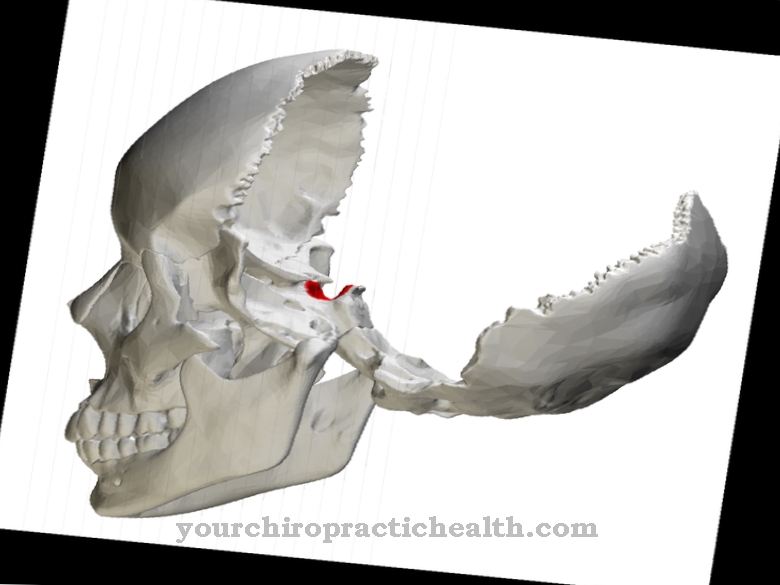


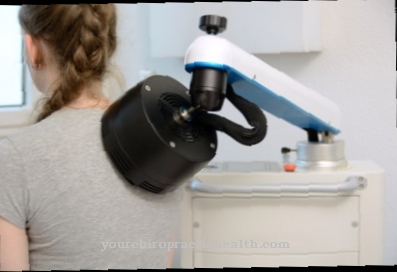
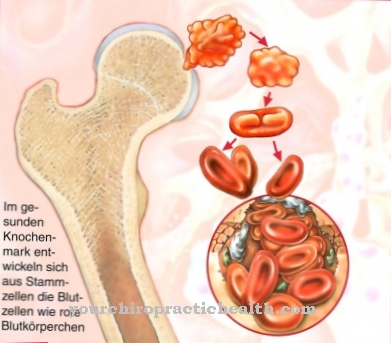






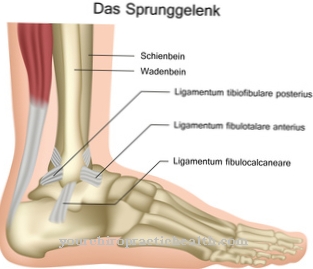

.jpg)

.jpg)
